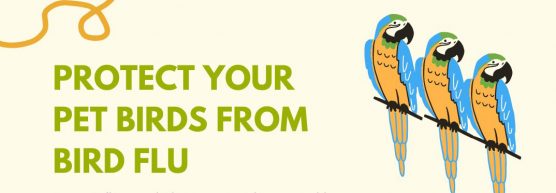The Los Angeles County Department of Public Health has confirmed the first eight cases of avian flu in L.A. County, including three Canada Geese and a Black-crowned Night Heron in Long Beach, three Canada Geese in the city of Los Angeles and one Canada Goose in Cerritos.
These cases are part of the ongoing nationwide bird flu outbreak, also known as Highly Pathogenic Avian Influenza H5N1. Currently, the risk to the general public’s health from this H5N1 virus is low.
This avian influenza, or bird flu, is a viral disease of birds caused by type A influenza viruses.
It is also of concern for domestic poultry as it is highly contagious and may cause illness and death in backyard and commercial flocks. It spreads through direct bird-to-bird contact or indirectly when virus is on clothing, footwear, vehicles, rodents, insects, feed, water, feathers, etc. Birds shed the virus in bodily fluids such as respiratory droplets, mucus, saliva and feces.
Although the risk to the general public’s health from this H5N1 virus is low, human infections can happen when the virus is inhaled (in droplets or dust) or when it enters the person’s eyes, nose, or mouth (either through unprotected contact with infected birds or contact with contaminated surfaces). The spread of HPAI from one infected person to another is very rare. However, because AI viruses can change and gain the ability to spread easily between people, it is important to monitor for both human infection and person-to-person spread.
The general public should avoid handling wild birds and observe them only from a distance. People who have job-related exposures to birds (including at animal shelters, veterinary clinics, or poultry processing plants) or recreational exposures to birds should wear personal protective equipment (PPE) when handling birds. This includes a mask, eye protection, gloves, and dedicated clothing and footwear. After handling any bird, wash hands well with soap and water and change clothes before having contact with other birds, especially domestic poultry or pet birds. It is safe to eat properly handled and cooked poultry and poultry products in the United States.
AI viruses are categorized as either highly pathogenic or low pathogenic based on their ability to cause disease and death in chickens in a laboratory setting. AI viruses circulate naturally among waterbirds, but H5N1, the highly pathogenic strain responsible for this ongoing outbreak, has caused illness and death in a greater variety of wild bird species than is typical. Wild birds may have no symptoms or may have neurological signs (including swimming in circles, head tilt, or tremors), respiratory distress, or sudden death. Domestic birds may have swelling of the head and eyes, diarrhea, weakness, respiratory distress, and loss of appetite.
Help reduce the spread and risk of avian influenza:
— Avoid contact with wild birds, even if they don’t look sick.
— Avoid surfaces that may be contaminated with saliva or feces from wild or domestic birds.
— Keep dogs and other pets away from wild birds.
— Do not handle sick or injured birds. Contact your local animal control agency for help.
— Bird owners should seek veterinary attention for their own animals if they seem sick.
— People with backyard chickens, ducks or other poultry should remove water and food sources that feed wild birds (bird feeders, bird baths, etc.).
— People with backyard flocks should keep poultry feed away from wild birds and rodents.
— People who handle pet birds or backyard poultry should thoroughly wash their hands and clean and disinfect footwear before and after coming into contact with their birds.
— Take down birdfeeders and birdbaths that may lead birds to congregate.
— For those who own birds that reside outdoors (e.g. backyard flock of chickens) or who handled a dead bird in the 14 days before onset of flu-like symptoms, public health recommends isolating from others and seeking medical care. Flu-like symptoms include fevers, chills, and muscle/body aches. When seeking care, please let your provider know about your possible exposure to AI.
Agencies and veterinarians can report sick or dead birds to Veterinary Public Health (VPH) by calling 213-288-7060 or by completing this reporting form and emailing it to vet@ph.lacounty.gov. The public may report dead birds using the VPH online reporting portal.
Veterinary Public Health is monitoring the situation and working with appropriate state and local agencies to continue surveillance, testing, and tracking of birds for this disease
Like this:
Like Loading...
Related





 Tweet This
Tweet This Facebook
Facebook Digg This
Digg This Bookmark
Bookmark Stumble
Stumble RSS
RSS




























REAL NAMES ONLY: All posters must use their real individual or business name. This applies equally to Twitter account holders who use a nickname.
0 Comments
You can be the first one to leave a comment.